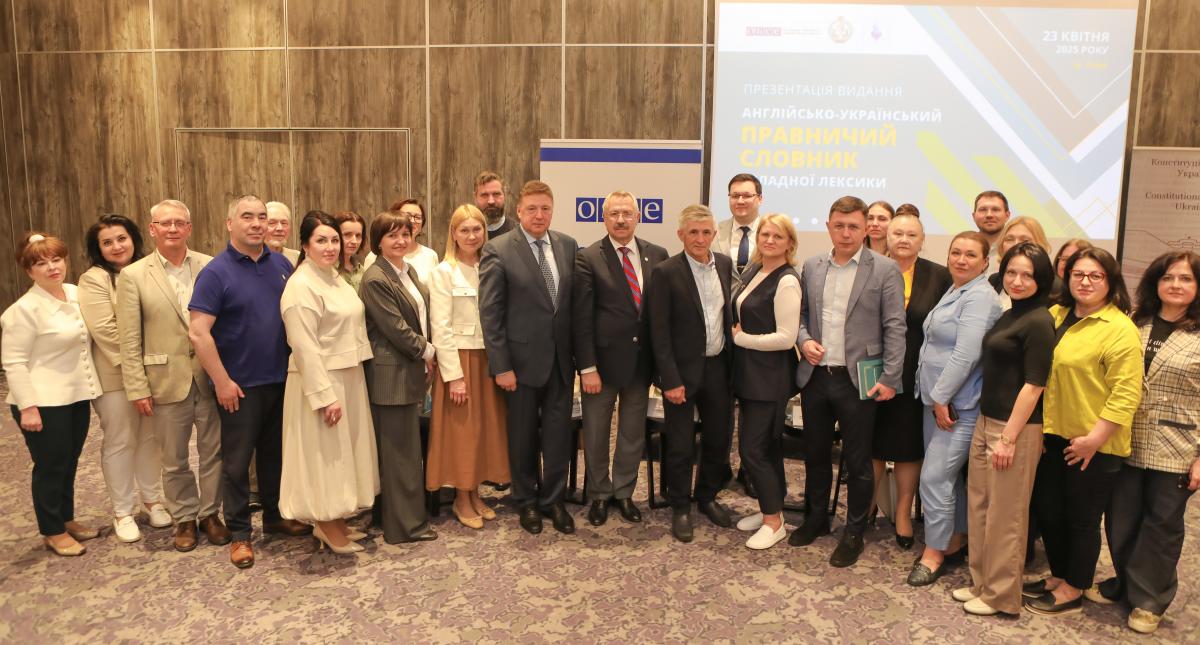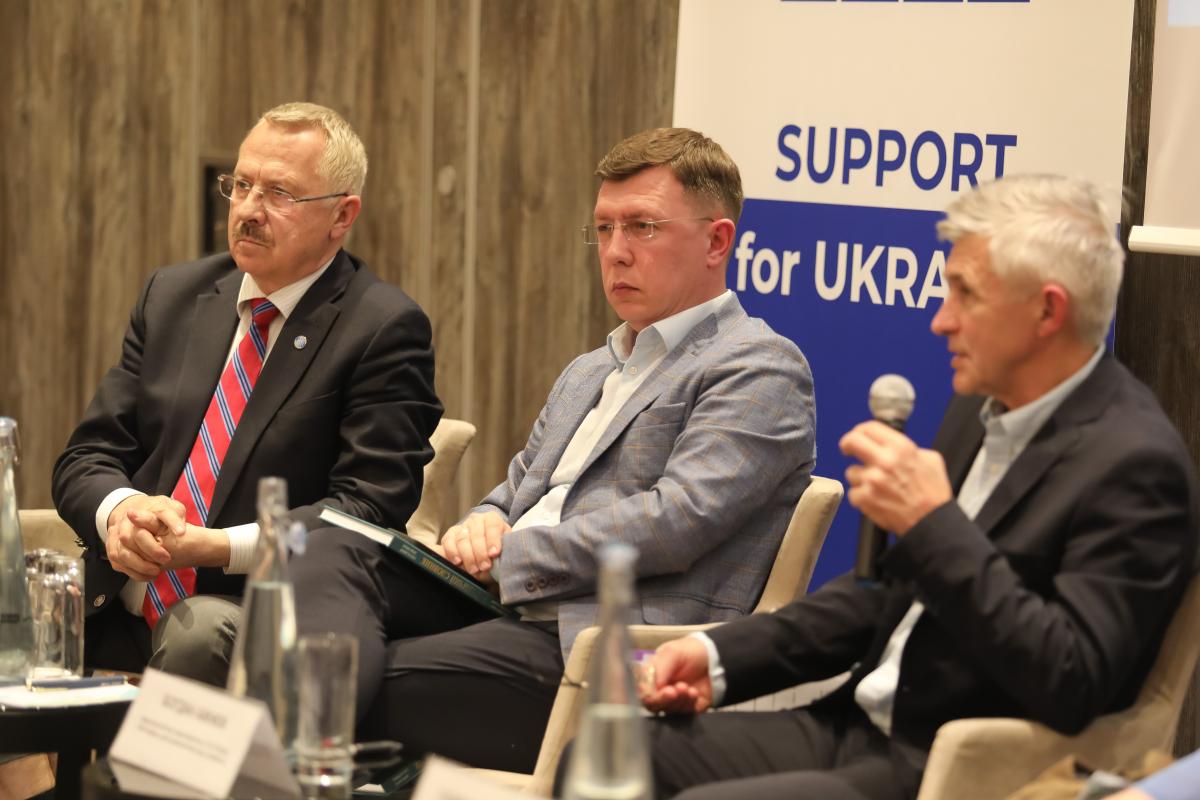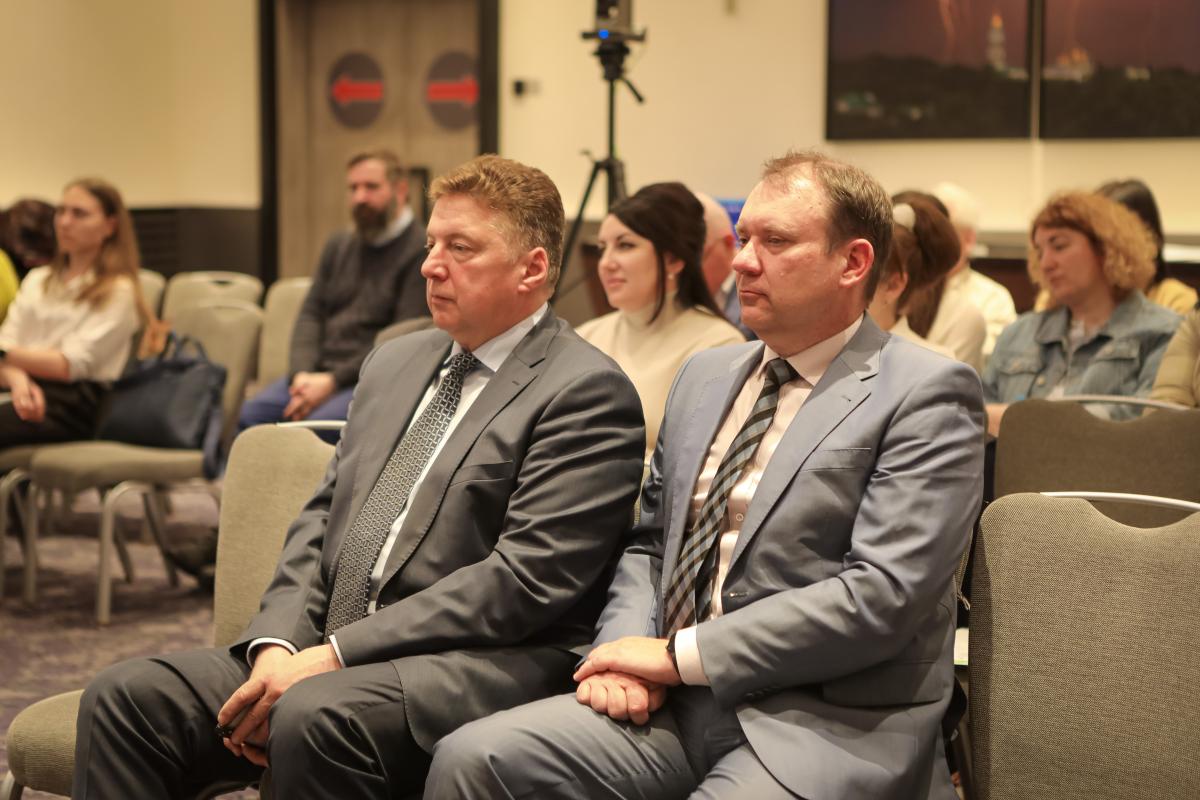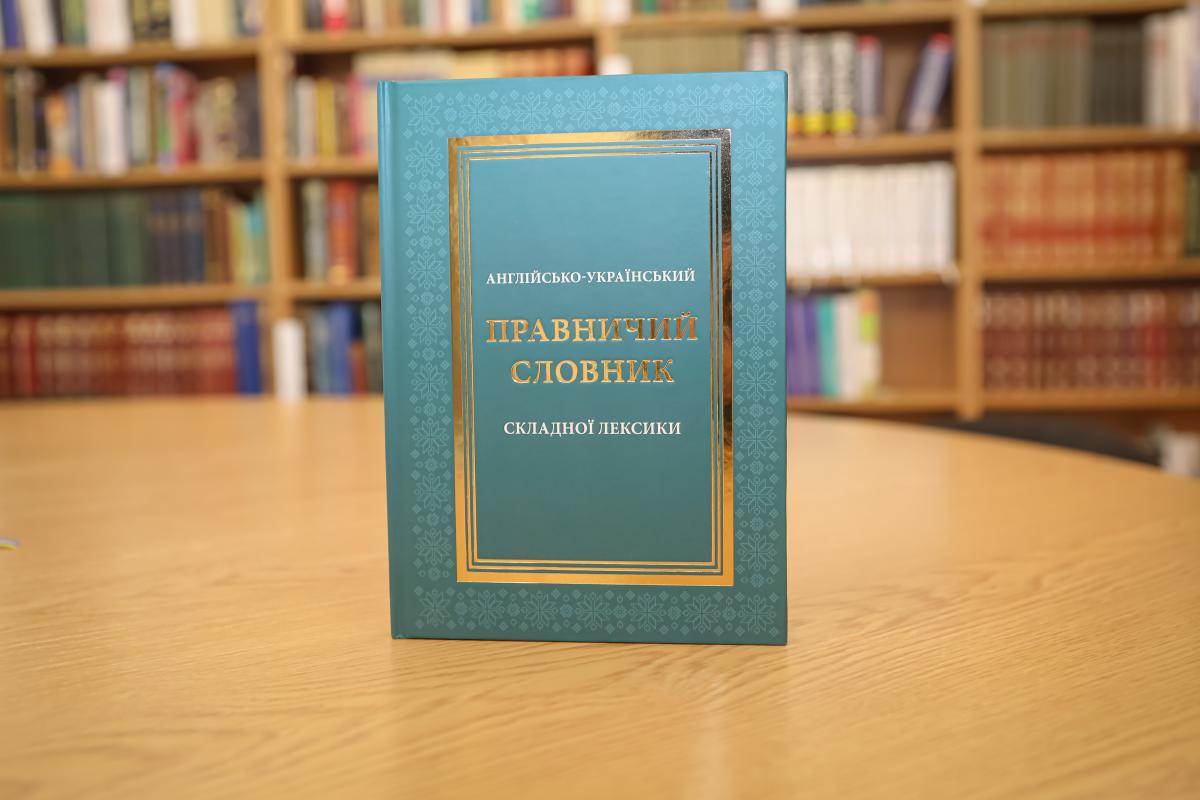On April 23, 2025, Kyiv held a presentation of the “English-Ukrainian Legal Dictionary of Complex Vocabulary”, prepared and compiled by representatives of the Constitutional Court of Ukraine (hereinafter, the “Court”) and the O.O. Potebnia Institute of Linguistics of the National Academy of Sciences of Ukraine.
Among the participants of the event were judges of the Court Viktor Gorodovenko, Serhiy Riznyk, Oleg Pervomaiskyi, Vasyl Lemak, members of the Court's Secretariat, representatives of the Potebnia Institute of Linguistics of the National Academy of Sciences of Ukraine, the Center for Legal Terminology of the National Academy of Lawyers of Ukraine, the National School of Judges of Ukraine, lawyers and international experts.
Judge of the Constitutional Court of Ukraine Serhiy Riznyk delivered a welcoming speech. He drew attention to the fact that the English language has been constantly evolving, not only without being oppressed, but also constantly expanding its scope, while the Ukrainian language has been under pressure and threat of destruction throughout history. Similarly, English law has been continuously evolving and gaining weight over the centuries not only in Britain but also far beyond its borders, while the development of Ukrainian law has been constantly hindered, primarily by external factors, and only after Ukraine gained independence did the formation of modern Ukrainian law begin. Therefore, the fact that now the English and Ukrainian languages, English and Ukrainian law are in the same dictionary is “a symbolic and important unification.”
“I sincerely welcome the creation of this dictionary, which in such a unique way combines language and law, past and present, shaping the future,” said Serhiy Riznyk and expressed hope that the judges of the Constitutional Court of Ukraine will actively use the dictionary in their work.
Oleksandr Vodyannikov, Senior Project Officer of the OSCE Support Program for Ukraine, emphasized the importance of this document, which is primarily to develop a European judicial dialogue, as judges and scholars should use common terminology and use the same concepts.
In his speech, he noted that this project was made possible thanks to the energy and efforts of Serhiy Holovaty, Head of the Center for Legal Terminology of the National Academy of Legal Sciences of Ukraine, and congratulated the team that worked on the project. “I hope that this initiative is not the final stage, but only one of the steps that will be followed by others for the benefit of the development of Ukrainian legal science,” added Oleksandr Vodiannikov.
The event was moderated by the Head of the Center for Legal Terminology of the National Academy of Legal Sciences of Ukraine, Doctor of Law, Professor, Corresponding Member of the National Academy of Legal Sciences of Ukraine, Serhiy Holovaty. In his speech, he sincerely thanked all those involved in the creation of the publication, in particular, the scientific consultant of the Court's judge Lesya Ponomarenko, who made considerable efforts to fill it and prepare it.
He spoke about the structure and concept of the dictionary and what exactly was the basis for it. The publication consists of four columns in the form of a table: the first column contains the original English terms; the second column contains the texts of translations into Ukrainian used by public authorities; the third column contains examples of the use of equivalents of English terms in the acts of the Court; the fourth column contains the terms recommended for use in Ukrainian by the A.A. Potebnia Institute of Linguistics.
“In their legal practice, lawyers, judges and other representatives of legal professions have to apply international law in its various forms, including international treaties, ECHR judgments, etc. That is why the presented dictionary will be a useful and practical tool in their professional activities,” said Serhiy Holovaty.
During the presentation of the dictionary, the Director of the Potemkin Institute of Linguistics of the National Academy of Sciences of Ukraine, Doctor of Philology, Professor Bohdan Azhnyuk noted that “this is a special edition, the result of a special cooperation between two authoritative institutions - the Constitutional Court of Ukraine and the O.O. Potebnya Institute of Linguistics of the National Academy of Sciences of Ukraine.”
Bohdan Azhnyuk emphasized that the dictionary has an unconventional format due to its subject matter - complex professional legal terminology. “This is a non-trivial dictionary dedicated to the difficulties of translating constitutional law terminology,” he said. Speaking about the structure of the dictionary, he noted that the approach used makes it possible to identify not only formal translation, but also its normative and practical application. “The correct understanding of legal terms directly affects not only law enforcement, but also the fate of individuals, social groups and even states,” he emphasized.
Galyna Zymovets, Senior Researcher at the O.O. Potebnia Institute of Linguistics of the National Academy of Sciences of Ukraine, PhD in Philology, spoke in detail about the advantages of the legal dictionary, the challenges faced by its compilers, and the approaches used to solve them.
The speaker emphasized that the dictionary will be of great importance for professional translators, as they face difficulties in translating concepts in the legal field. The expert informed that the dictionary contains not only English terminology, but also Latin expressions and their translation into Ukrainian, as well as examples from French, which played a significant role in the international context in previous eras.
The dictionary offers certain models for adapting certain means used in English legal terminology to convey these concepts in Ukrainian legal terminology. “The dictionary offers several translation options depending on the context in which the phrase or word is used,” emphasized Galyna Zymovets.
The event was organized with the support of the Organization for Security and Co-operation in Europe (OSCE) and its Senior Project Officer of the OSCE Support Program for Ukraine, Oleksandr Vodiannikov.
____________
“The English-Ukrainian Legal Dictionary of Complex Vocabulary” was published in 2025 under the editorship of Doctor of Law, Professor Serhiy Holovaty and Doctor of Philology, Professor Bohdan Azhnyuk.
This edition was compiled by Doctor of Law, Professor Serhiy Holovaty, and Scientific Advisor to the Court's Judge Lesia Ponomarenko.
The publication was prepared with the assistance of the OSCE Support Program for Ukraine.





